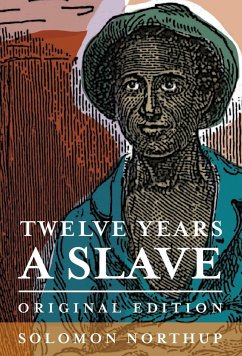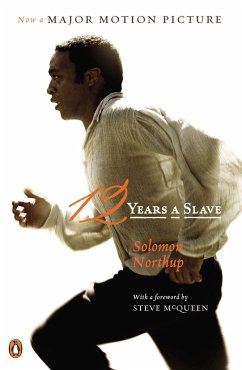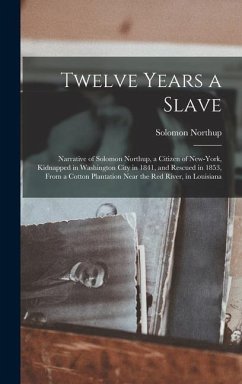
Twelve Years a Slave
Original Edition
Versandkostenfrei!
Versandfertig in über 4 Wochen
31,99 €
inkl. MwSt.

PAYBACK Punkte
16 °P sammeln!
In 1841, free-born African American Solomon Northup was offered a job in his hometown of Saratoga Springs, New York. He followed his employers to the job site at Washington, D.C., where he was beaten, drugged, kidnapped, and sold into slavery, eventually ending up on a plantation in Louisiana owned by Edwin Epps. While there, in 1852, Northup befriended Canadian carpenter Samuel Bass, who was at the time doing work for Epps. Secretly, Bass was able to contact Northup's family, who informed New York governor Washington Hunt of his kidnapping. The state was able to use a law passed in 1840 that ...
In 1841, free-born African American Solomon Northup was offered a job in his hometown of Saratoga Springs, New York. He followed his employers to the job site at Washington, D.C., where he was beaten, drugged, kidnapped, and sold into slavery, eventually ending up on a plantation in Louisiana owned by Edwin Epps. While there, in 1852, Northup befriended Canadian carpenter Samuel Bass, who was at the time doing work for Epps. Secretly, Bass was able to contact Northup's family, who informed New York governor Washington Hunt of his kidnapping. The state was able to use a law passed in 1840 that allowed the recovery of free black men who were sold into slavery to rescue Northup. Solomon was finally made free again on January 4, 1853. One of few slaves of his era ever to regain freedom, he devoted his time and energy to lecturing and educating others about abolitionism. His memoir of the experience, Twelve Years a Slave, a best-seller in its time, was published in 1853, during his first year back as a free man. Cosimo Classics is now presenting a paperback and hard cover jacketed republication of the original edition. SOLOMON NORTHUP (1808-c. 1875) was a free African American from New York who was deceived, drugged, and sold into slavery in Washington, D.C. in 1841. He was transported to New Orleans and sold to a plantation owner in Louisiana. For several years, he was passed around between slave owners before winding up with plantation owner Edwin Epps. There he met Canadian carpenter Samuel Bass, who helped him regain his freedom in 1853. Solomon spent the rest of his life as an abolitionist. He also assisted with the Underground Railroad in the early 1860s.












